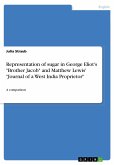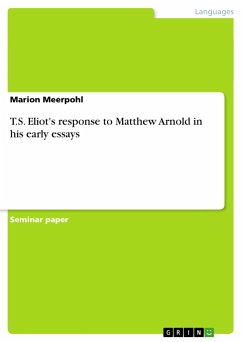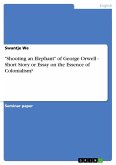Classic from the year 2008 in the subject English Language and Literature Studies - Literature, , language: English, abstract: Chapter IAmong the many fatalities attending the bloom of young desire, that of blindly taking to the confectionery line has not, perhaps, been sufficiently considered. How is the son of a British yeoman, who has been fed principally on salt pork and yeast dumplings, to know that there is satiety for the human stomach even in a paradise of glass jars full of sugared almonds and pink lozenges, and that the tedium of life can reach a pitch where plum-buns at discretion cease to offer the slightest excitement? Or how, at the tender age when a confectioner seems to him a very prince whom all the world must envy-who breakfasts on macaroons, dines on meringues, sups on twelfth-cake, and fills up the intermediate hours with sugar-candy or peppermint-how is he to foresee the day of sad wisdom, when he will discern that the confectioner's calling is not sociallyinfluential, or favourable to a soaring ambition? I have known a man who turned out to have a metaphysical genius, incautiously, in the period of youthful buoyancy, commence his career as a dancing-master; and you may imagine the use that was made of this initial mistake by opponents who felt themselves bound to warn the public against his doctrine of the Inconceivable. He could not give up his dancing-lessons, because he made his bread by them, and metaphysics would not have found him in so much as salt to his bread. It was really the same with Mr. David Faux and the confectionery business. His uncle, the butler at the great house close by Brigford, had made a pet of him in his early boyhood, and it was on a visit to this uncle that the confectioners' shops in that brilliant town had, on a single day, fired his tender imagination. He carried home the pleasing illusion that a confectioner must be at once the happiest and the foremost of men, since the things he made were notonly the most beautiful to behold, but the very best eating, and such as the Lord Mayor must always order largely for his private recreation; so that when his father declared he must be put to a trade, David chose his line without a moment's hesitation; and, with a rashness inspired by a sweet tooth, wedded himself irrevocably to confectionery. Soon, however, the tooth lost its relish and fell into blank indifference; and all the while, his mind expanded, his ambition took new shapes, which could hardly be satisfied within the sphere his youthful ardour had chosen.[...]
Hinweis: Dieser Artikel kann nur an eine deutsche Lieferadresse ausgeliefert werden.
Hinweis: Dieser Artikel kann nur an eine deutsche Lieferadresse ausgeliefert werden.








